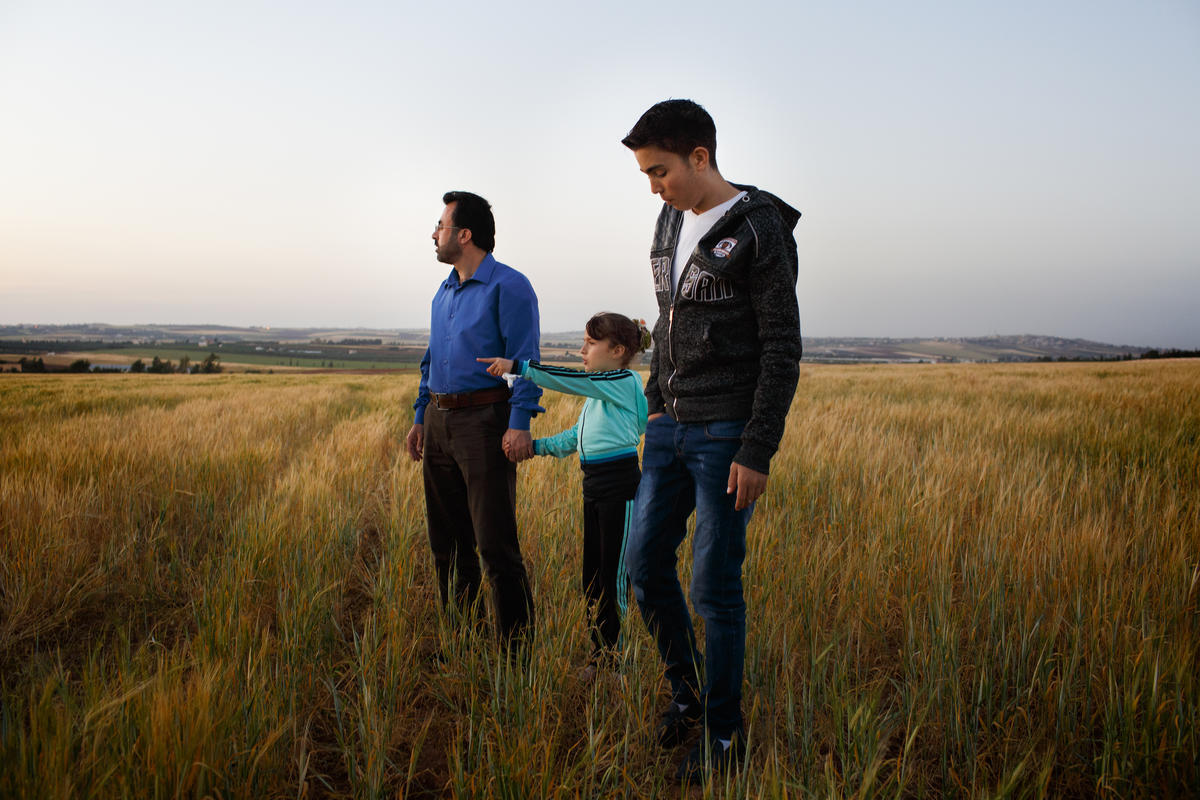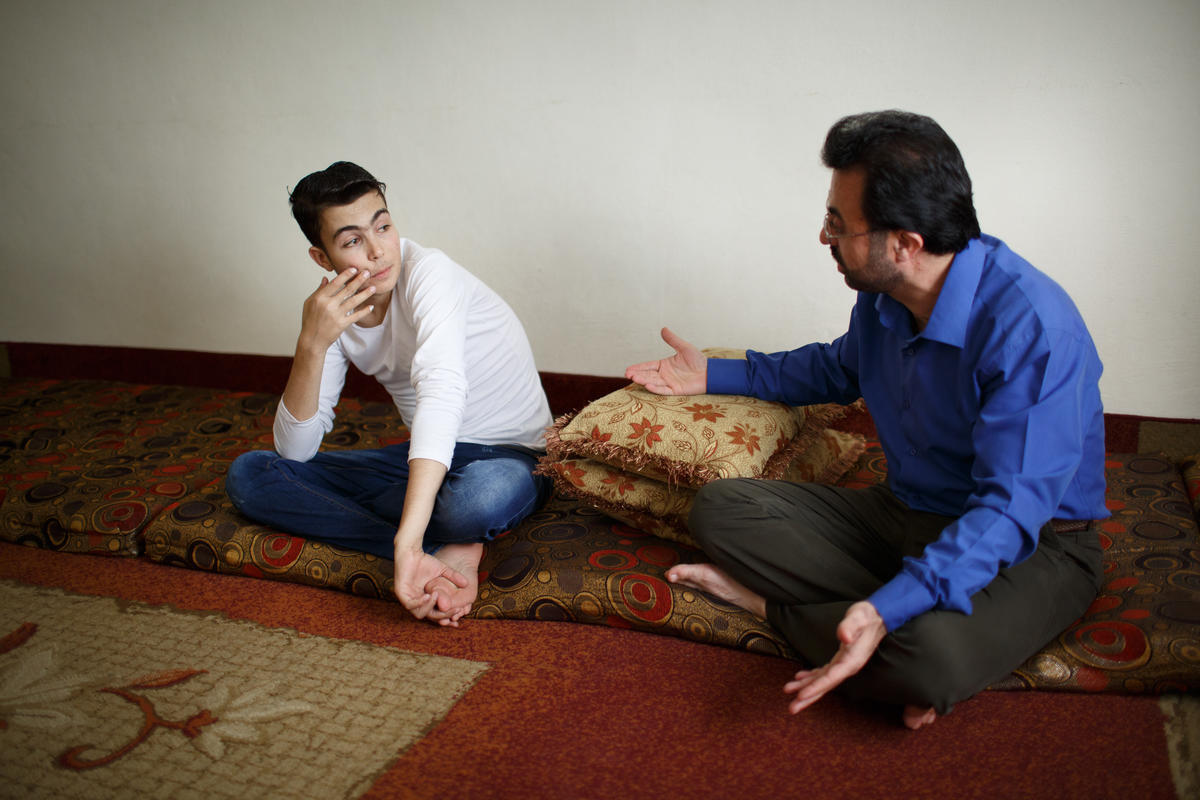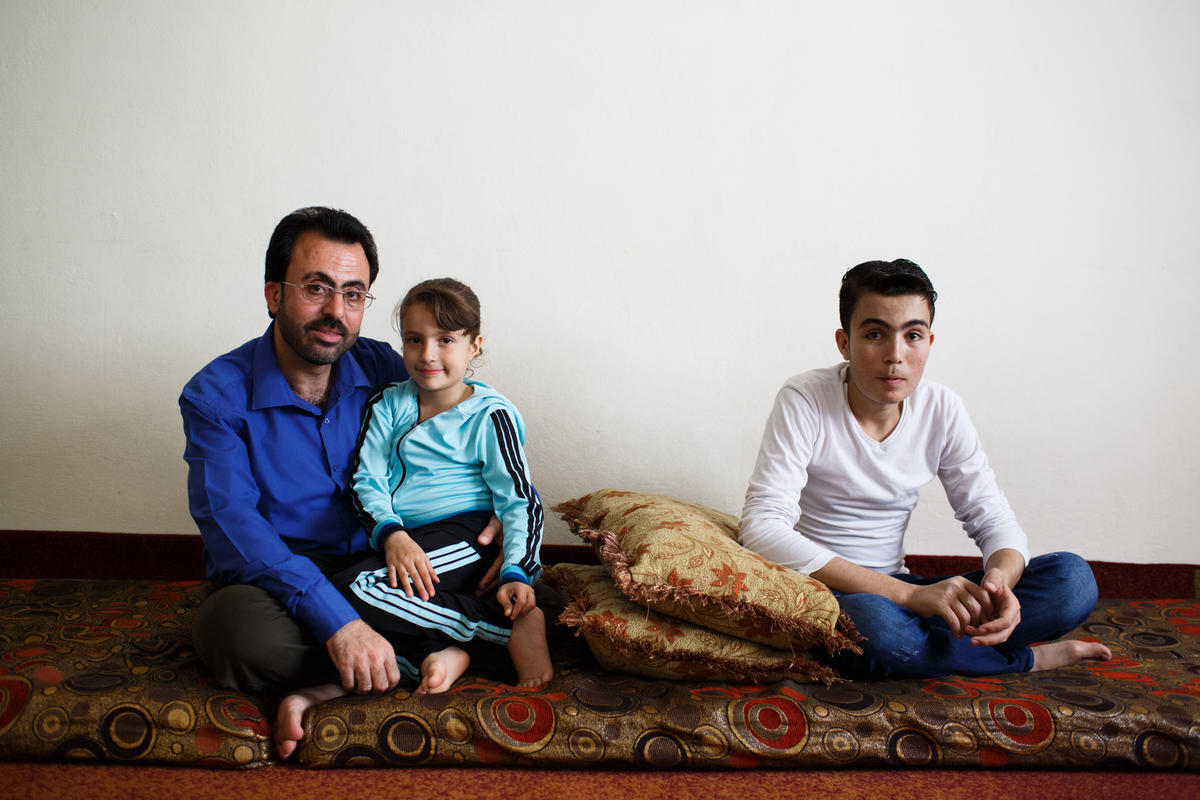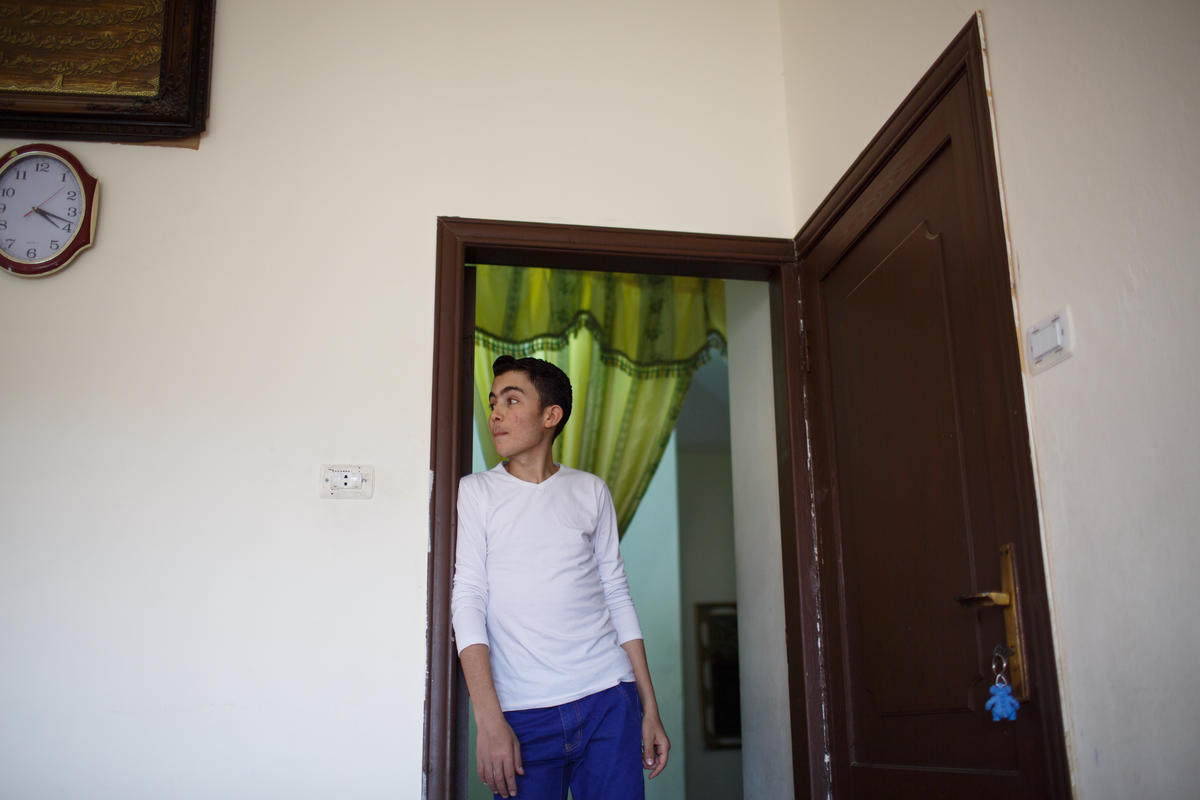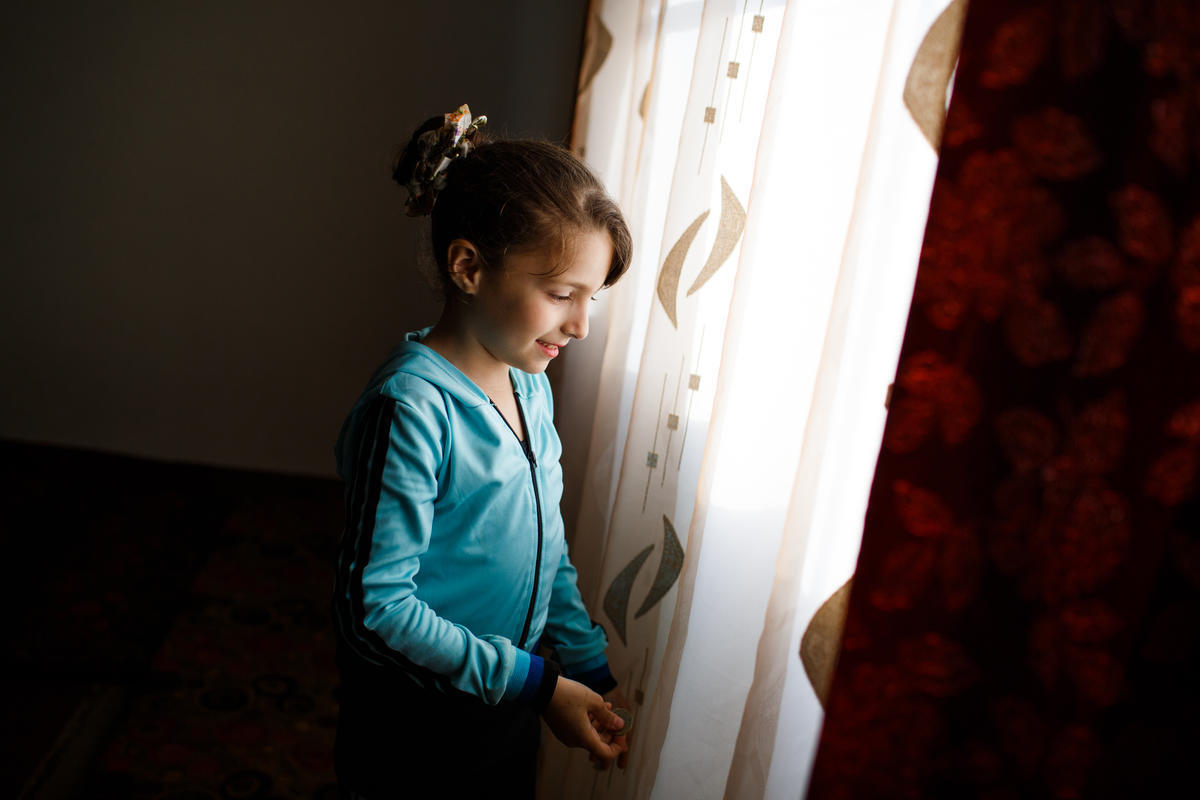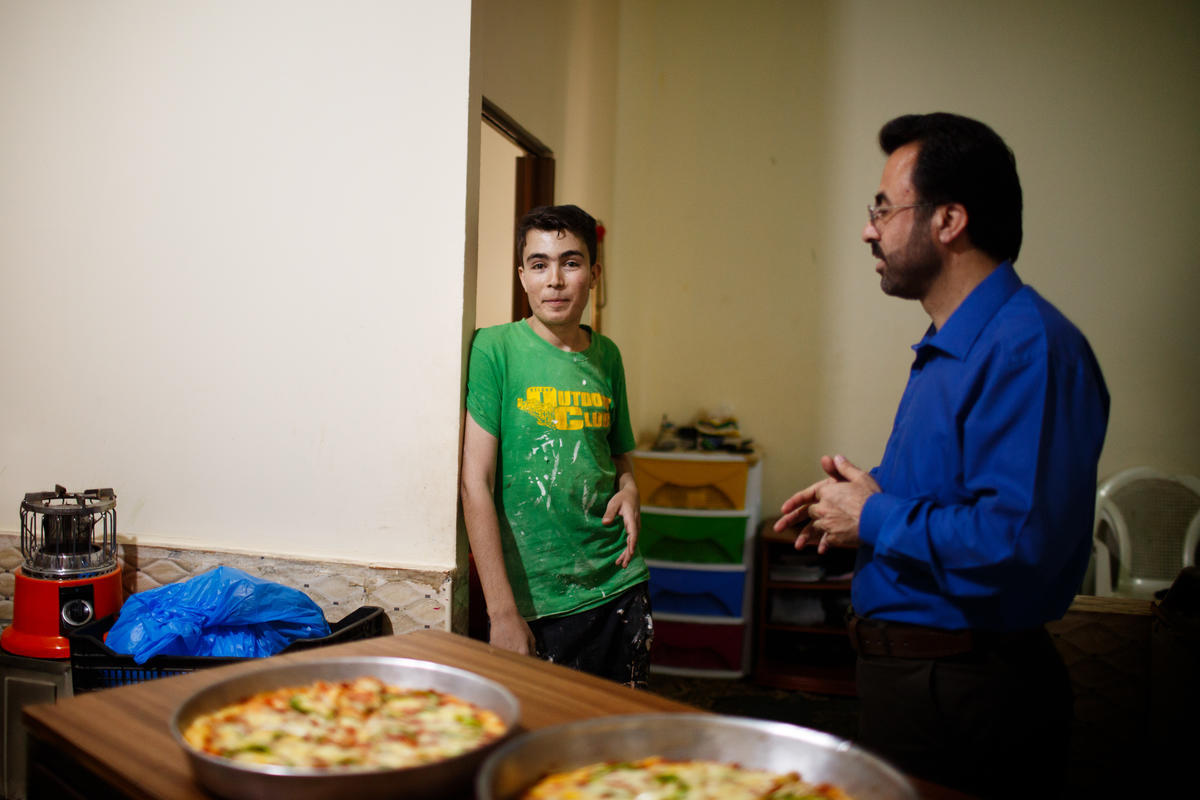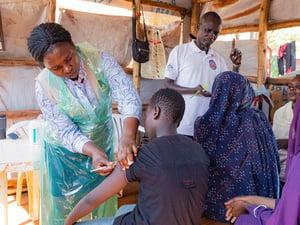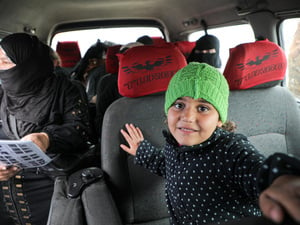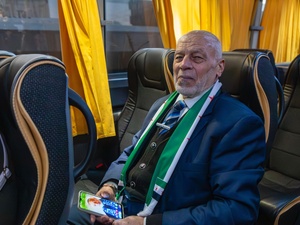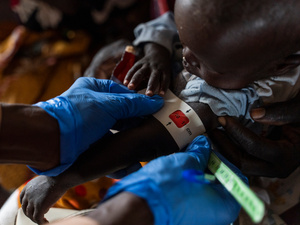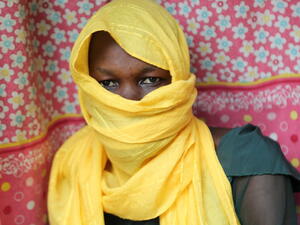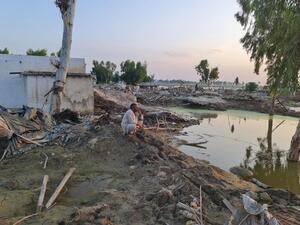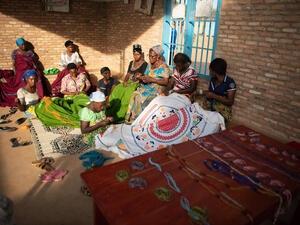Jordan health cost hikes leave Syrians in dire need
Like hundreds of thousands of other parents who have fled Syria’s seven-year conflict as refugees, Hamed left to protect his children. But unlike most, his main reason was not the bullets or bombs, but the fear of not being able to secure the regular medical treatment they need to survive.
Two of Hamed’s children have thalassaemia, a hereditary blood disorder that requires regular transfusions and costly drugs to manage the side effects. “Because of the war, and the difficulty of reaching hospitals to secure medication, treatment and blood for my children, I had to leave Syria,” he said.
After arriving in Jordan from Dara’a in southern Syria in 2013, the 47-year-old former mechanical engineer was able to access treatment for his son Ahmad, 21, and daughter Bara’a, seven, at little or no cost.
Together with the regular food vouchers they receive from the World Food Programme, and monthly cash assistance of 155 Jordanian dinars (US$218) from UNHCR, the UN Refugee Agency, they had what they needed to get by.
But that all changed on 1 March, when the Jordanian government introduced rules that significantly hiked the cost of public health services for Syrian refugees. Fees have increased two- to five-fold for most services, with charges for a regular hospital birth – for example – rising from 60 dinars to 240 dinars (US$85 to US$338), and a caesarian section increasing from 240 dinars to 600 dinars (US$338 to US$846).
In a country where 80 per cent of Syrian refugees in urban areas live below the poverty line on less than US$3 per day, the scale of the increase will put even basic medical treatment beyond the reach of most.
Ahmad and Bara’a's treatment for thalassaemia – a condition which leads to anaemia and, in severe cases, possible heart failure if left untreated – was heavily subsidized before the changes. But the monthly cost of the drugs they need has gone from 3.5 dinars (US$5) to a scarcely believable 2,800 dinars (US$3,950).
"I'm seeing my children slowly degenerate before my eyes."
“The cost is too high – I cannot pay it,” Hamed explained. UNHCR is covering the 105-dinar (US$148) cost of their monthly blood transfusions. But without medication to limit the accumulation of iron in their bodies as a result of the transfusions, they risk side effects including fatigue, osteoporosis, heart palpitations, organ failure and eventually death.
“I’m seeing my children slowly degenerate before my eyes,” Hamed said. “I cannot secure the medication they need, so of course I feel desperate. I have a hard time living – the taste of life has become bitter.”
Despite his rising panic, Hamed says he understands why Jordan took the measures it did. The country is currently host to more than 650,000 registered Syrian refugees, and with the crisis now into its eighth year, the financial strain for a country already suffering from high unemployment, fragile infrastructure and a scarcity of natural resources is becoming too much to bear.
“Of course we are not blaming Jordan,” Hamed said. “The costs of this illness should not be the sole responsibility of the Jordanian Ministry of Health. There has to be a collective effort with Jordan through financial support.”
The changes have massively increased UNHCR’s funding requirements just to maintain basic access to health services for refugees in Jordan. The urgent need for increased financial support to the more than 5.6 million Syrian refugees in the region and the countries hosting them is one of the main focuses of an EU and UN donor conference being held in Brussels on 24 and 25 April.
“Jordan’s generous response towards Syrian refugees has been widely appreciated,” said Stefano Severe, UNHCR Representative in Jordan. “This is why UNHCR strongly advocates with key development actors such as the EU and the World Bank for predictable, sustained multi-year funding to support Jordan’s public health system, with affordable access by refugees to public health services.”
For many thousands of Syrian refugees like Ahmad and Bara’a, the stakes could not be higher. “This is my life,” Ahmad said. “If the medication stops, my life will stop.”


